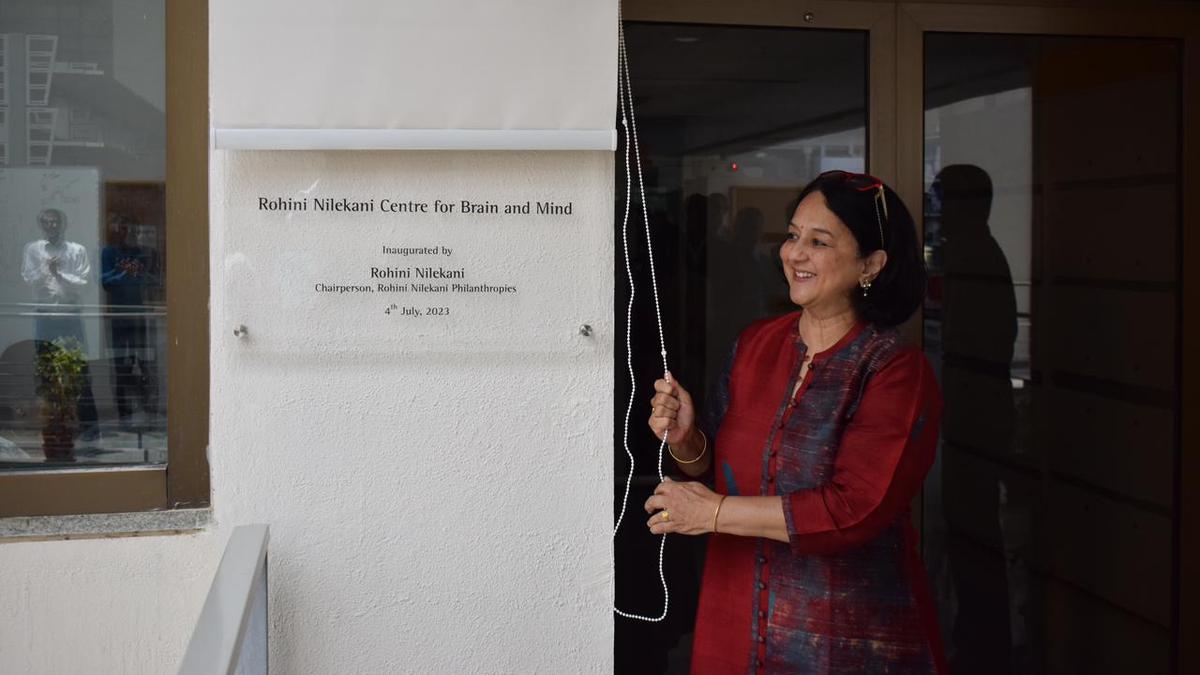
Rohini Nilekani Centre for Brain and Mind launched at NCBS Bengaluru
The Hindu
The centre will support research pertaining to five mental disorders — schizophrenia, bipolar disorder, addiction, obsessive-compulsive disorder, and dementia.
The Rohini Nilekani Centre for Brain and Mind was launched at the National Centre for Biological Sciences (NCBS) in Bengaluru on July 4. The centre will focus on the long-term examination of environmental and genetic factors involved in brain development, which underline severe mental illness.
The centre will support research through its partnership with the National Institute of Mental Health and Neurosciences (NIMHANS), and NCBS’s therapeutic practices pertaining to five mental disorders — schizophrenia, bipolar disorder, addiction, obsessive-compulsive disorder, and dementia.
The centre is an outcome of a ₹100 crore grant to NCBS and NIMHANS for long-term research, and to build capacity for both research and practice in the mental health field. The money will be released over a period of time.
Rohini Nilekani, chairperson of Rohini Nilekani Philanthropies, said, “India has a significant number of people, around 193 million, dealing with mental illness. The proportional contribution of mental disorders to the total disease burden in India has almost doubled since 1990.
“This centre will attempt to address this challenge by driving interdisciplinary research to understand the complexities of brain and mind conditions. More research originating from India is critical at this juncture.”
Dr. Partima Murthy said, “It is a greater challenge to get research support for mental health as compared to physical disorders like cancer.
“This will enable us to look further into the common as well as distinctive biological (including genetic) and psychosocial underpinning of disorders, such as schizophrenia, bipolar mood disorders, obsessive-compulsive disorders, addictive disorders, and dementia. We hope that with the help of the Rohini Nilekani Philanthropies, we will be able to help lakhs of people with severe mental diseases to eventually receive more effective interventions.”











